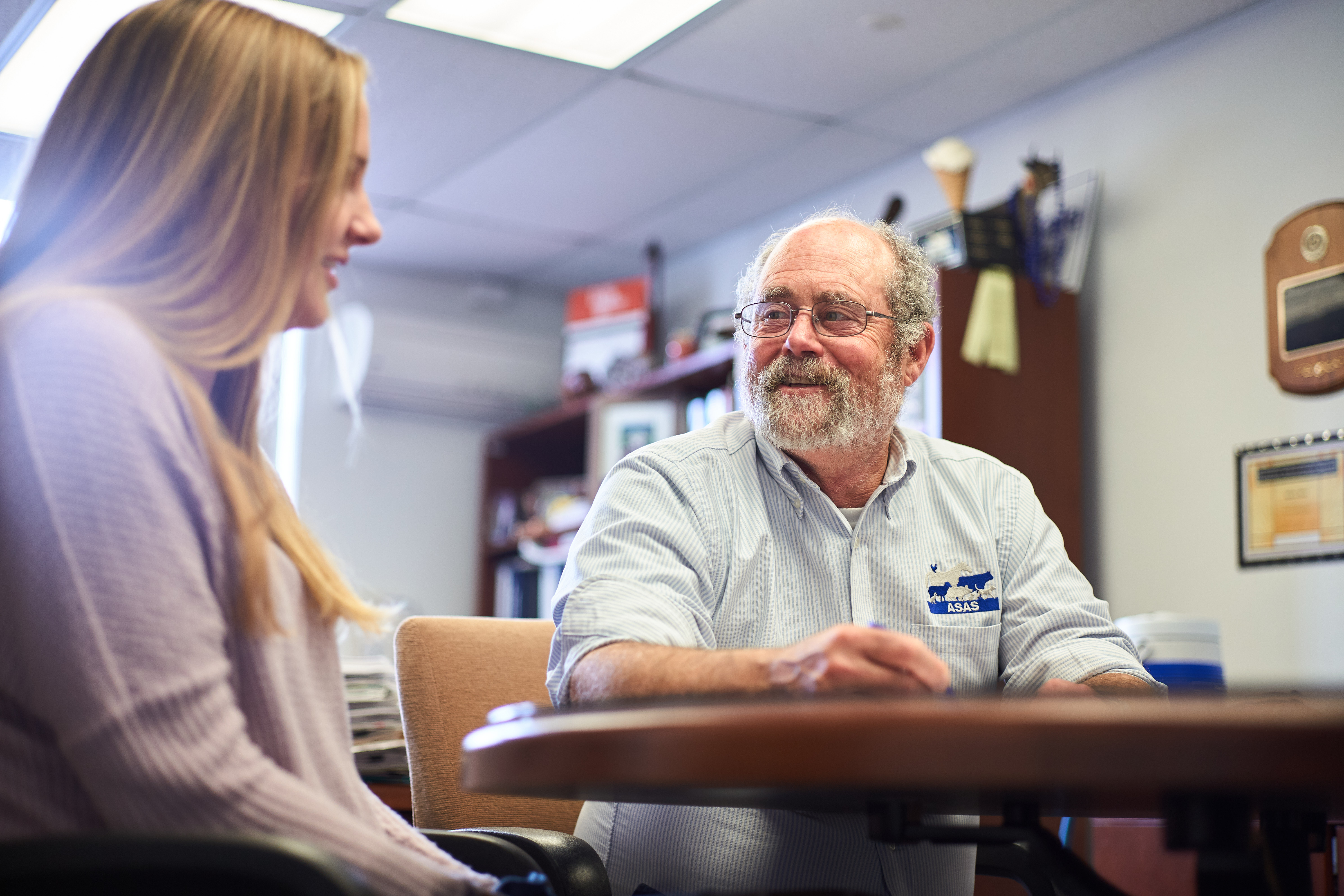The goal of getting a good job following graduation has always been important to college students and survey data backs that up. In numerous national surveys, students cite employment as a primary reason to attend college and note the value of receiving guidance from faculty to meet their goals.
In a 2018 Strada-Gallup national alumni survey, 88% of graduates say they received career advice from either faculty or the career services office.
At UConn, the Center for Career Development recently launched an innovative program called “Career Everywhere” to recognize the widespread career development activity that happens at the university, and the key role that faculty members play in offering career guidance.
“Career Everywhere brings together members of the campus community for training and discussions in an effort to continue to learn from one another,” says Jim Lowe, associate vice president and executive director of the Center for Career Development.
As part of the Career Everywhere program, the center is sponsoring a career champion program that identifies faculty and staff who are actively engaged in helping students meet career goals.
Steven Zinn, department head and professor of animal science, says those connections when the students are undergraduates but continue long after students graduate.
A few weeks ago, Zinn says, he received a call from a company looking for a researcher interested in reproductive toxicology work and connected that person to an alumna who had recently noted that she was interested in new opportunities.
“Whether it’s leading them to a job, a graduate program, a faculty position … our job is to train the next generation and if we bail on them at graduation we are not doing our job,” says Zinn. “When students are our advisees, we tend to stay in touch with them much longer then the day they leave here.”
The new program enhances the rich array of services available through the Career Development Center. Six months after graduation, 88% of UConn alumni report a positive outcome, with 63% employed and 22% continuing their education, among other options.
“Students are supported at the University of Connecticut in a lot of different ways and they have lots of touchpoints,” said Danielle DeRosa, a clinical instructor in the sport management program in the Neag School of Education. “I think the role of a faculty member can be really impactful in terms of career planning, because often times they have an idea of what is happening in the industry and in the classroom and they can make the critical connections that perhaps someone who broadly understands the field or the discipline may not be able to make in a specific way.”
The field of career development at universities has grown immensely since it began after the Korean Conflict as many veterans went to college on the GI Bill, says Lowe. The Career Everywhere program will allow students to use both their faculty advisor and the Center for Career Development to achieve maximum value.
“We have one of the best Career Center websites in the country that will get 700,000 hit this year, which is big part of our success,” says Lowe. “But, now we have to build more energy with the faculty and staff. Career Everywhere is the beginning of that.”
Career Everywhere will help ensure that faculty members a student may interact with regarding career readiness is equipped with the tools and resources needed to help.
“The program will allow faculty members to learn more about the center and what it does,” said DeRosa. “It will encourage us to send our students and advisees over there more often and let them know what they can achieve there.”



